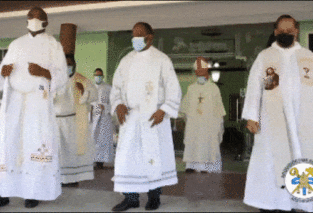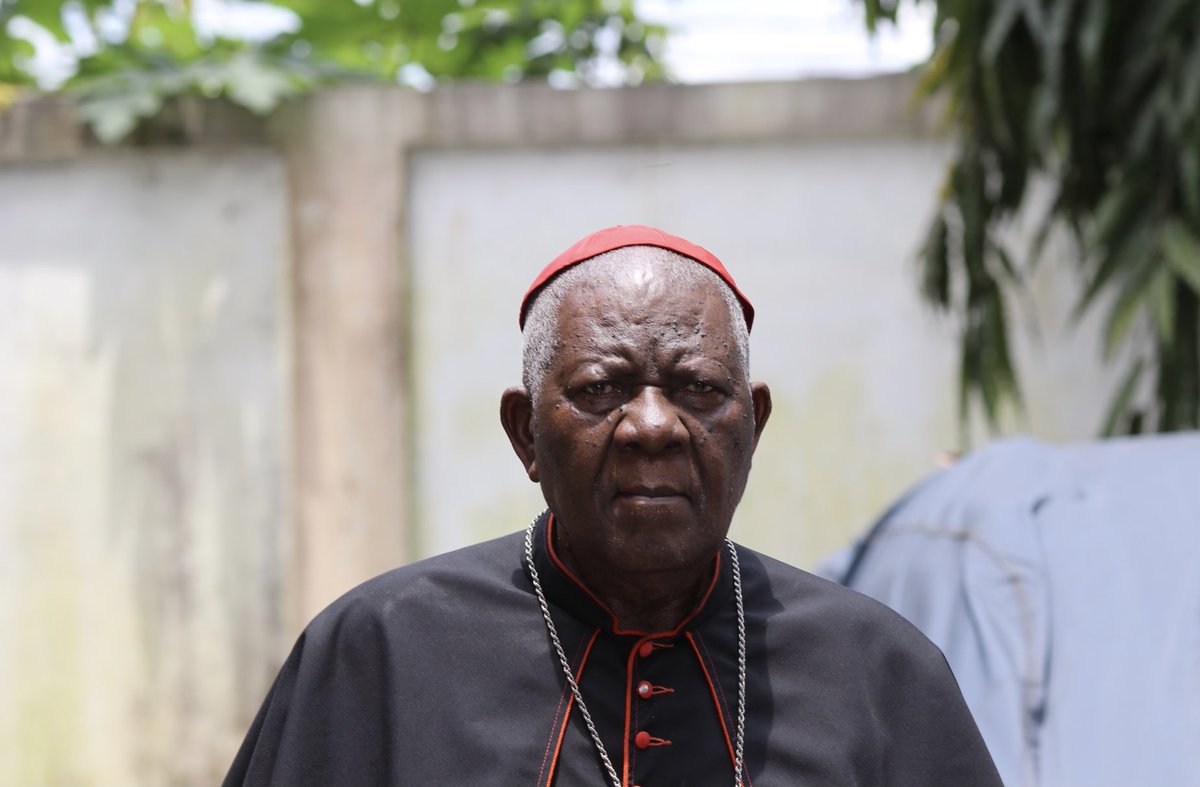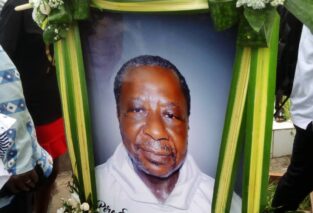A few days before the Holy Father’s arrival in Cameroon, I did what I would, under normal circumstances, not do, that is, take the time to listen to CRTV radio or watch its television.
However, since the Pope’s visit was an extraordinary event, it called for extraordinary action on my part; and so I found myself sitting in my office one morning listening to a guest speaker on a CRTV morning French program.
Professor Messina, who introduced himself as a Vatican Consulter, sounded really good, and seemed well prepared to answer challenging questions, notably many on the now famous priestly celibacy issue. He also proved to master the vocabulary of the Catholic Church well. His knowledge of Vatican history, of papal encyclicals and other related issues and documents, was truly impressive.
From that day on, I began to listen to the CRTV national station fairly regularly. On the day of the Holy Father’s arrival, I was caught in one of those dreadful traffic jams of which only Douala seems to have the secret. As taxi drivers furiously hooted their car horns and flashed obscene gestures at each other, and the moped riders (the now notorious and irritating ‘bendskins’) twisted their way in and out of the mess, I sat there perfectly still, my mind focused on the events at the Nsimalen International Airport. As I listened to the reporters on the beat, it became clear to me that French-speaking journalists were doing remarkably better than their English-speaking counterparts.
How? They sounded much surer of what they were saying, spoke more fluently and with a lot more conviction than did the English-speaking journalists. Of the two journalists I listened to when the Pope arrived in Nsimalen, the French journalist was sure of what he said and how he said it, and you could feel that he mastered the vocabulary of the Catholic Church well. He linked the present visit easily with the last visit Pope John Paul II made in 1995, a visit the journalist said he covered. He varied the titles of the Pope, gave a detailed academic cursus of the Holy Father, all the while linking such knowledge of the papacy with the events that were then taking place at the airport in Yaounde. I had a clear feeling that I was listening to a professional, who had taken the pain to do his homework well.
But when his English-speaking colleague took the microphone, lots of lisps tended to mar his speech, his delivery became a little jerky and sounded unconvincing. It left me with the impression that the French journalist had taken the time to prepare his work well ahead of time, but the English journalist had not. One would have thought that CRTV journalists, assigned to cover that event, would have done research work, notably by consulting the Vatican website to familiarise themselves with the language of papal events. They could also invite a priest, or a lay faithful, like Professor Messina, with a thorough knowledge of Church history and vocabulary, to drill them on how to report on such events. I even heard one journalist address the Holy Father as “His Lordship the Pope”, amazingly enough!
There was an English-speaking journalist who constantly spoke of the Holy Father being at the “Apostolic Annunciature”, instead of the “Apostolic Nunciature”, the residence of the Apostolic Nuncio, the Holy Father’s Representative to our country, where the Holy Father resided during his stay with us. The question is, “if in doubt, why not ask?”
English-speaking journalists spoke quite frequently of “The Synod of African bishops”. This was heard constantly, particularly on the last day as the Pope was about to leave us. The correct expression is “The Special Assembly for Africa of the Synod of Bishops”. I am not aware of the existence in the Church of “The Synod of African Bishops”. As always, the French fellows seemed more familiar with the correct expression than their English counterparts.
At the Nsimalen International Airport, just before the Holy Father’s plane took off for Angola, a French-speaking journalist did what further proved to me that the French desk was better prepared than the English desk. This gentleman identified the Cardinals who were around the Holy Father as they made their way to the plane, gave their names and their functions at the Vatican. Oh, how lovely! It was easy to applaud a man who had visibly and audibly done his home work well. It’s unfortunate his English-speaking counterpart did not pick the cue from him to give the same information in English to his English-speaking listeners.
On the whole, therefore, and only basing my judgment on the time I had the chance to listen to CRTV, which, admittedly, was not much, French-speaking journalists outshone their English-speaking colleagues in the way they covered the Holy Father’s visit to our country. I could not help lamenting that our English-speaking journalists had apparently not read Father Andrew Nkea’s providential article in Cameroon Panorama No 617 of March 2009 entitled “Titles and Office of the Pope.” That would certainly have made a difference in the way they addressed the Holy Father.
We give thanks to God for blessing our land one more time with the presence of the Holy Father. When he next comes to promulgate the Synodal Apostolic Exhortation in Yaounde, as his predecessor did in 1995, I hope our CRTV friends will be better prepared. How do I know he will be back soon? It is just a gnawing voice, deep within me that tells me that Pope Benedict XVI will be back to this country, a few years from now, to give to the Church that is in Africa the final product of the working document, the Instrumentum Laboris, which he gave to the Church that is in Africa in Yaounde the other day.
I am no magician but he is coming back! My instincts never fail me, especially when they concern the Holy Father’s visit to Cameroon. And when he does come back, we hope our CRTV journalists of the English desk will be better prepared to enlighten our people more thoroughly than was the case this time around.


